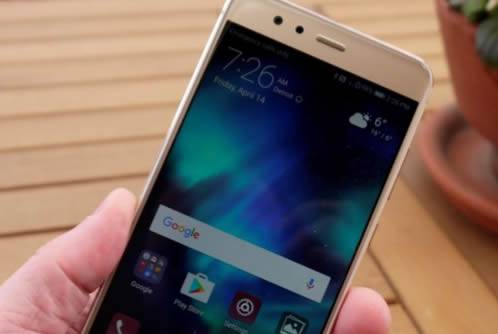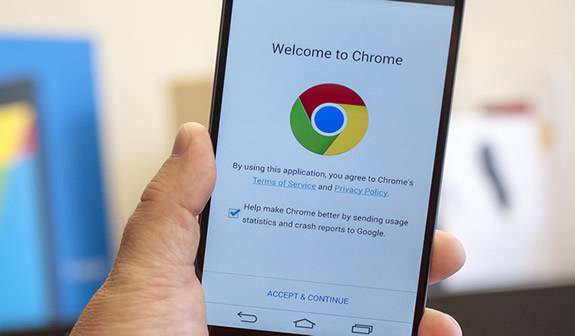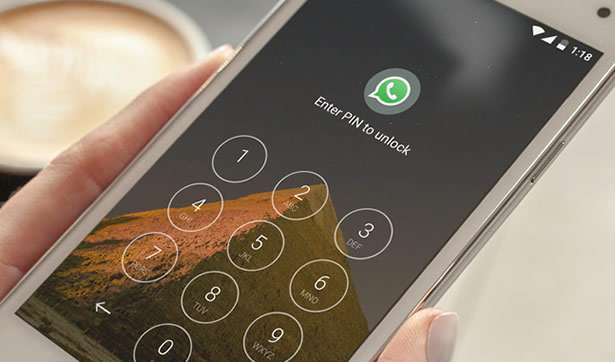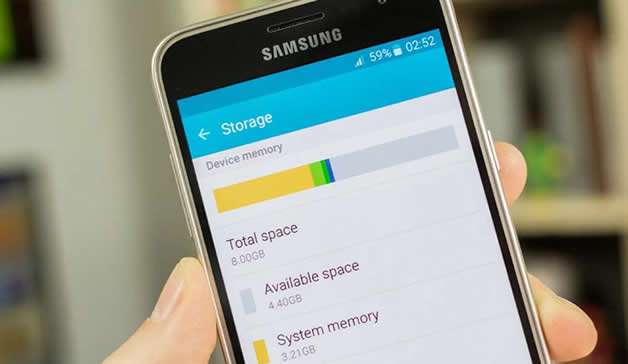It is difficult to definitively answer whether Apple phones are more secure than Android phones. Both operating systems provide users with a range of security features and options to help protect their data, but there are pros and cons for each. Ultimately, it comes down to the user’s individual needs when deciding which platform is best for them in terms of security.
One advantage that Apple has over Android is that its devices run on iOS, which is purpose-built by Apple and has fewer vulnerabilities than Android due to its closed system architecture. In addition, all apps released through the App Store must go through an approval process before they can be downloaded onto iPhones or iPads. This means that malicious software or malware will not make it into the App Store, further reducing risk of infection or attack from third parties.
Android also offers good levels of security but because Google allows developers to access parts of the OS codebase within their apps – something known as ‘modular development’ – this increases opportunities for attackers who may find ways around the existing defences put in place by Google . Furthermore, app verification procedures are less rigorous than those used by Apple so there is increased potential for malicious software entering via unofficial channels and causing damage if unchecked.
Both platforms offer users a wide range of powerful tools such as encryption settings , two-factor authentication requirements , biometric login methods (e.g., facial recognition) , VPNs etc., enabling individuals to keep their data safe from prying eyes . It’s important however that these measures are regularly updated so users should ensure they stay informed about any relevant changes happening on either platform . Additionally , installing antivirus solutions can add an extra layer protection against hackers who might try stealing information stored on smartphones .
In conclusion then , while both platforms have plenty of features available to help keep user data secure , ultimately it comes down to personal preference and need when choosing between an iPhone or Android device based solely on security considerations .
Why Apple is more secure than Android?
Which is more secure iPhone or Samsung?
When it comes to security, both the iPhone and Samsung phones have their own strengths. Ultimately, it is important to determine which type of device best meets your needs and preferences in terms of security. Here are some factors to consider when assessing the relative security of each device:
1. Operating System Updates: Both Apple and Samsung update their operating systems regularly with new features and bug fixes that help ensure user data remains secure on their devices. Additionally, Apple releases iOS updates more frequently than Samsung releases its Android updates, so iPhones tend to be more up-to-date when it comes to patching potential vulnerabilities.
2. Encryption Features: Both iPhones and Samsungs come with built-in encryption features that can protect your information from unauthorized access or manipulation by third parties or hackers. Additionally, most newer models of both devices also offer an extra layer of protection through biometric authentication such as Face ID or fingerprint scanning for added peace of mind.
3. Application Security: When downloading apps onto either type of device, make sure you only download reputable applications from official stores like the App Store (for iPhones) or Google Play (for Samsungs). Apps approved by these stores generally go through a vetting process before being released so they are less likely to contain malicious software that could compromise your data privacy if installed on your phone..
4. Additional Security Measures: You may want to consider using additional measures like VPNs (virtual private networks), two factor authentication methods, password managers, etc., depending on how much personal data you store on your mobile device and how concerned you are about keeping it safe from online threats
What is the most secure phone?
The most secure phone is the one that you take steps to protect. Regardless of the make or model, it’s important to remain vigilant about your security and privacy settings, as well as ensuring that your device has up-to-date software with all of the latest security patches installed. Here are some tips for making sure your phone is as secure as possible:
1. Activate two-factor authentication (2FA) whenever possible on any accounts that support it. This adds an extra layer of protection beyond just a password by requiring an additional code sent via text message or email when logging in from a new device.
2. Use complex passwords and never reuse them across multiple accounts; passwords should contain at least 8 characters with a combination of upper and lowercase letters, numbers, and symbols if allowed by the platform. Consider using a password manager such as LastPass or 1Password to keep track of logins securely.
3. Be mindful about what apps you download onto your device; only download reputable apps from official app stores like Google Play Store, Apple App Store etc., avoid clicking suspicious links in emails/texts or downloading files from unknown sources – these can often be malicious and open up vulnerabilities on your device if downloaded without proper cautionary measures taken first such as running anti-virus scans before opening them on your computer/device .
4. Enable encryption if available for devices with sensitive data stored on them – this scrambles data so that it cannot be easily accessed without knowing the key used during encryption process (which could also be stored securely elsewhere).
5 Investigate other forms of biometric authentication options such as fingerprint scanning or facial recognition which provide added layers of defense against attempted hacks into personal information stored on phones & computers alike – this can help reduce risk factors associated with stolen/lost devices having their contents exposed due to lack of physical access control methods being employed beforehand .
What phones get hacked the most?
The answer to this question depends largely on the type of phone and the security measures in place. Generally speaking, phones that are not updated regularly or have outdated operating systems can be more vulnerable to hacking attempts. Additionally, those with weak passwords or no password protection at all may also be more likely to experience a hack. To best protect your phone from hacking attempts, it is important to keep your device up-to-date by downloading any available software updates as soon as they become available and using strong passwords that include both upper and lower case letters, numbers, and symbols when setting them up. Additionally, avoid connecting to public Wi-Fi networks without first ensuring they are secure by looking for HTTPS in the URL bar when logging into websites.
What are the disadvantages of iPhone over Android?
The main disadvantage of iPhone over Android is that iPhones are more expensive and have fewer customization options. Although iPhones offer a great user experience, they can be limiting when it comes to personalizing them for the user’s needs. Additionally, Apple has strict control over what apps and software are available on their devices, which can limit users’ access to certain features or capabilities. Furthermore, iPhones tend to require regular updates in order to maintain optimal performance levels and security patches; these updates often come with new features that some users may not want or need. Finally, iPhones do not support microSD cards for expanded storage space, meaning you must purchase an additional model with more memory if needed.
Can an iPhone be hacked?
Yes, an iPhone can be hacked. It is important to take steps to protect your iPhone against potential hacking attempts, as it contains personal information and data that could be compromised if the device were to become hacked. To help keep your iPhone secure and reduce the risk of being hacked, there are several methods you can employ. These include keeping your phone’s operating system up-to-date by regularly downloading software updates; setting strong passwords and enabling two-factor authentication on accounts linked to the device; only connecting to trusted Wi-Fi networks; avoiding suspicious links or downloads sent via email or text message; using a virtual private network (VPN); and checking for unauthorized access in settings such as iCloud.
Which phone is hardest to hack?
The best way to keep your phone secure from hackers is to use a combination of strong passwords, two-factor authentication, and up-to-date security software. Additionally, the device you choose plays an important role in how well it can be protected against hacking attempts. Generally speaking, iPhones and Android devices running the latest operating systems are considered some of the hardest phones to hack due to their robust security measures.
Is iPhone or Android better for privacy?
When it comes to privacy, both iPhone and Android offer users different levels of security. However, Apple’s iOS is generally considered to be more secure than Google’s Android operating system when it comes to protecting user data. For example, iPhones are configured with end-to-end encryption that makes it difficult for anyone other than the device owner to access data stored on the phone. Additionally, Apple has a comprehensive set of controls for managing what apps can access your personal information and contacts list.
Android offers some basic privacy settings but they don’t compare favorably with Apple’s offerings and have been criticized in the past for lacking strong enough measures against malicious actors attempting to gain access to user data. Moreover, since many Android phones come preloaded with third party apps from various manufacturers or carriers, there is an increased risk of malware or other malicious software being installed onto devices without the user’s knowledge or consent.
Ultimately, if you’re looking for maximum privacy protection then an iPhone is likely your best option due largely to its robust security features. That said, there are also steps you can take regardless of which platform you choose that will enhance your overall online safety such as using a VPN service while connected to public WiFi networks and avoiding clicking on suspicious links sent via email or text message.
{“@context”:”https://schema.org”,”@type”:”FAQPage”,”mainEntity”:[{“@type”:”Question”,”name”:”Which is more secure iPhone or Samsung?”,”acceptedAnswer”:{“@type”:”Answer”,”text”:”nnWhen it comes to security, both the iPhone and Samsung phones have their own strengths. Ultimately, it is important to determine which type of device best meets your needs and preferences in terms of security. Here are some factors to consider when assessing the relative security of each device: n1. Operating System Updates: Both Apple and Samsung update their operating systems regularly with new features and bug fixes that help ensure user data remains secure on their devices. Additionally, Apple releases iOS updates more frequently than Samsung releases its Android updates, so iPhones tend to be more up-to-date when it comes to patching potential vulnerabilities. n2. Encryption Features: Both iPhones and Samsungs come with built-in encryption features that can protect your information from unauthorized access or manipulation by third parties or hackers. Additionally, most newer models of both devices also offer an extra layer of protection through biometric authentication such as Face ID or fingerprint scanning for added peace of mind. n3. Application Security: When downloading apps onto either type of device, make sure you only download reputable applications from official stores like the App Store (for iPhones) or Google Play (for Samsungs). Apps approved by these stores generally go through a vetting process before being released so they are less likely to contain malicious software that could compromise your data privacy if installed on your phone.. n4. Additional Security Measures: You may want to consider using additional measures like VPNs (virtual private networks), two factor authentication methods, password managers, etc., depending on how much personal data you store on your mobile device and how concerned you are about keeping it safe from online threats”}},{“@type”:”Question”,”name”:”What is the most secure phone?”,”acceptedAnswer”:{“@type”:”Answer”,”text”:”nnThe most secure phone is the one that you take steps to protect. Regardless of the make or model, it’s important to remain vigilant about your security and privacy settings, as well as ensuring that your device has up-to-date software with all of the latest security patches installed. Here are some tips for making sure your phone is as secure as possible: nn1. Activate two-factor authentication (2FA) whenever possible on any accounts that support it. This adds an extra layer of protection beyond just a password by requiring an additional code sent via text message or email when logging in from a new device. nn2. Use complex passwords and never reuse them across multiple accounts; passwords should contain at least 8 characters with a combination of upper and lowercase letters, numbers, and symbols if allowed by the platform. Consider using a password manager such as LastPass or 1Password to keep track of logins securely. nn3. Be mindful about what apps you download onto your device; only download reputable apps from official app stores like Google Play Store, Apple App Store etc., avoid clicking suspicious links in emails/texts or downloading files from unknown sources – these can often be malicious and open up vulnerabilities on your device if downloaded without proper cautionary measures taken first such as running anti-virus scans before opening them on your computer/device . nn4. Enable encryption if available for devices with sensitive data stored on them – this scrambles data so that it cannot be easily accessed without knowing the key used during encryption process (which could also be stored securely elsewhere). nn5 Investigate other forms of biometric authentication options such as fingerprint scanning or facial recognition which provide added layers of defense against attempted hacks into personal information stored on phones & computers alike – this can help reduce risk factors associated with stolen/lost devices having their contents exposed due to lack of physical access control methods being employed beforehand .”}},{“@type”:”Question”,”name”:”What phones get hacked the most?”,”acceptedAnswer”:{“@type”:”Answer”,”text”:”nnThe answer to this question depends largely on the type of phone and the security measures in place. Generally speaking, phones that are not updated regularly or have outdated operating systems can be more vulnerable to hacking attempts. Additionally, those with weak passwords or no password protection at all may also be more likely to experience a hack. To best protect your phone from hacking attempts, it is important to keep your device up-to-date by downloading any available software updates as soon as they become available and using strong passwords that include both upper and lower case letters, numbers, and symbols when setting them up. Additionally, avoid connecting to public Wi-Fi networks without first ensuring they are secure by looking for HTTPS in the URL bar when logging into websites.”}},{“@type”:”Question”,”name”:”What are the disadvantages of iPhone over Android?”,”acceptedAnswer”:{“@type”:”Answer”,”text”:”nnThe main disadvantage of iPhone over Android is that iPhones are more expensive and have fewer customization options. Although iPhones offer a great user experience, they can be limiting when it comes to personalizing them for the useru2019s needs. Additionally, Apple has strict control over what apps and software are available on their devices, which can limit users’ access to certain features or capabilities. Furthermore, iPhones tend to require regular updates in order to maintain optimal performance levels and security patches; these updates often come with new features that some users may not want or need. Finally, iPhones do not support microSD cards for expanded storage space, meaning you must purchase an additional model with more memory if needed.”}},{“@type”:”Question”,”name”:”Can an iPhone be hacked?”,”acceptedAnswer”:{“@type”:”Answer”,”text”:” nnYes, an iPhone can be hacked. It is important to take steps to protect your iPhone against potential hacking attempts, as it contains personal information and data that could be compromised if the device were to become hacked. To help keep your iPhone secure and reduce the risk of being hacked, there are several methods you can employ. These include keeping your phone’s operating system up-to-date by regularly downloading software updates; setting strong passwords and enabling two-factor authentication on accounts linked to the device; only connecting to trusted Wi-Fi networks; avoiding suspicious links or downloads sent via email or text message; using a virtual private network (VPN); and checking for unauthorized access in settings such as iCloud.”}},{“@type”:”Question”,”name”:”Which phone is hardest to hack?”,”acceptedAnswer”:{“@type”:”Answer”,”text”:”nnThe best way to keep your phone secure from hackers is to use a combination of strong passwords, two-factor authentication, and up-to-date security software. Additionally, the device you choose plays an important role in how well it can be protected against hacking attempts. Generally speaking, iPhones and Android devices running the latest operating systems are considered some of the hardest phones to hack due to their robust security measures.”}},{“@type”:”Question”,”name”:”Is iPhone or Android better for privacy?”,”acceptedAnswer”:{“@type”:”Answer”,”text”:”nnWhen it comes to privacy, both iPhone and Android offer users different levels of security. However, Apple’s iOS is generally considered to be more secure than Google’s Android operating system when it comes to protecting user data. For example, iPhones are configured with end-to-end encryption that makes it difficult for anyone other than the device owner to access data stored on the phone. Additionally, Apple has a comprehensive set of controls for managing what apps can access your personal information and contacts list. nnAndroid offers some basic privacy settings but they don’t compare favorably with Apple’s offerings and have been criticized in the past for lacking strong enough measures against malicious actors attempting to gain access to user data. Moreover, since many Android phones come preloaded with third party apps from various manufacturers or carriers, there is an increased risk of malware or other malicious software being installed onto devices without the user’s knowledge or consent. nnUltimately, if you’re looking for maximum privacy protection then an iPhone is likely your best option due largely to its robust security features. That said, there are also steps you can take regardless of which platform you choose that will enhance your overall online safety such as using a VPN service while connected to public WiFi networks and avoiding clicking on suspicious links sent via email or text message.”}}]}







